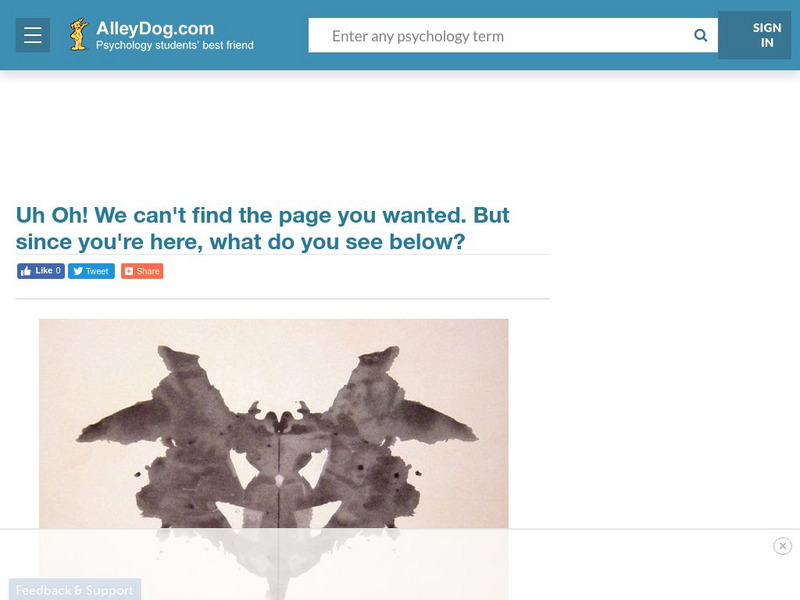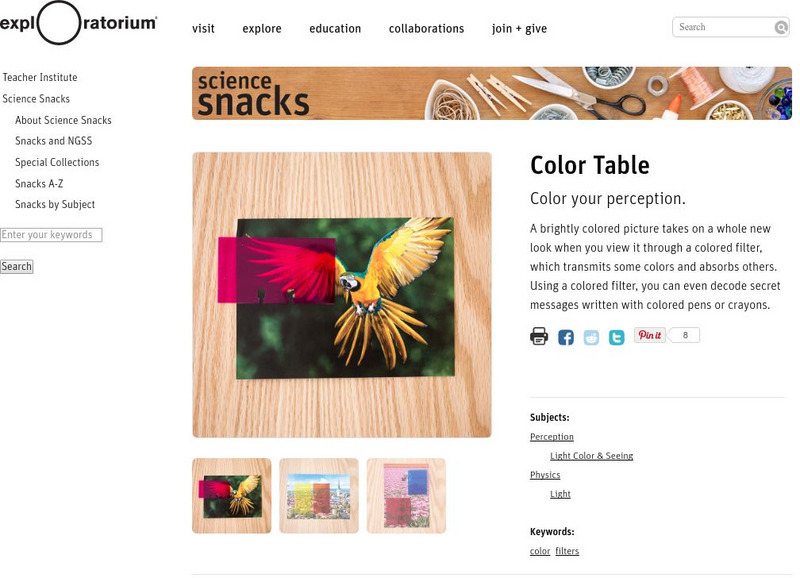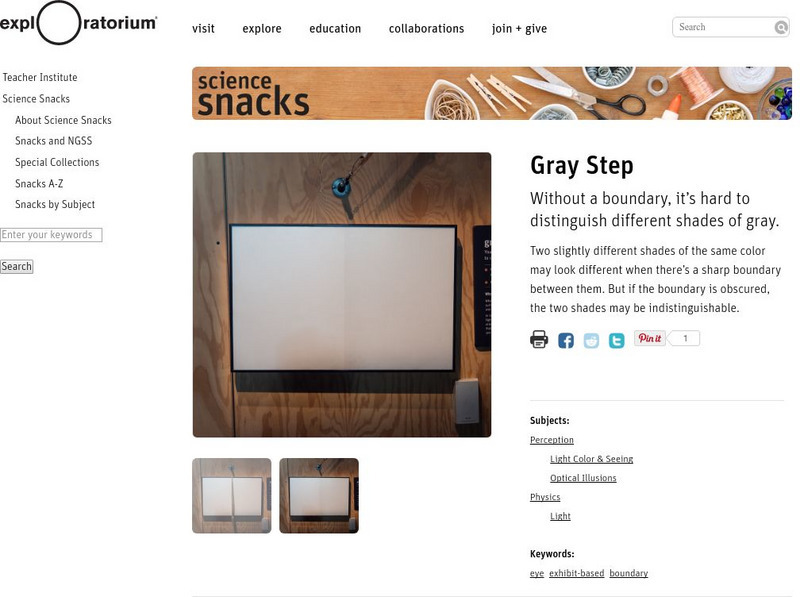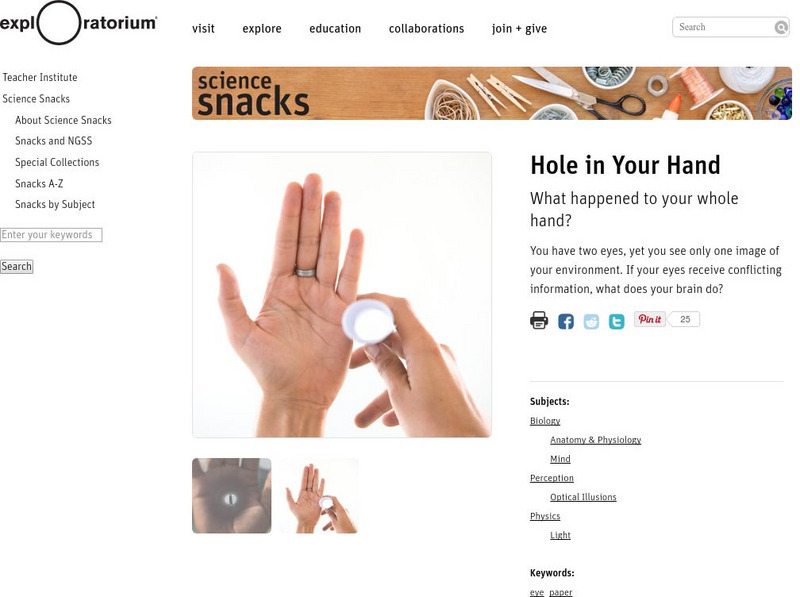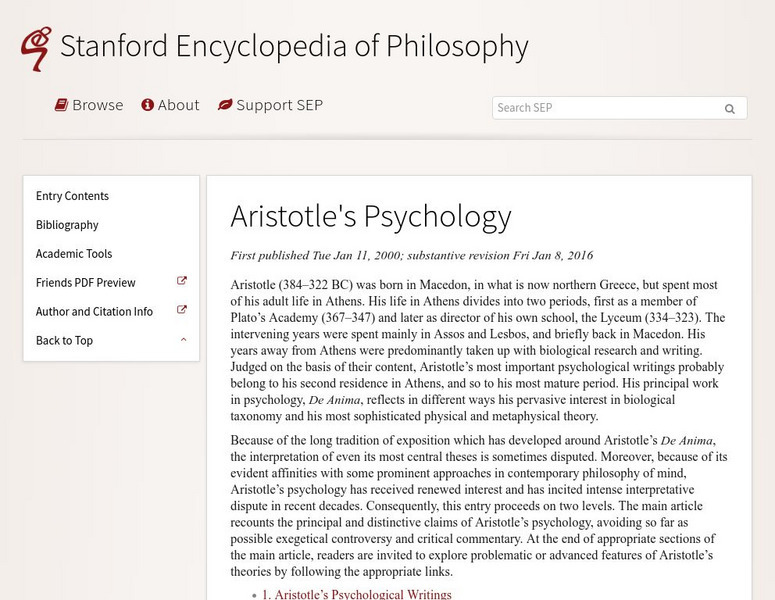Other
Audiblox: Foundational Reading Skills
What types of reading skills do students need to be successful? This informative site focuses on students with learning disabilities. Explore!
Other
Alley Dog: Psychology Class Notes: Sensation and Perception
The study of psychophysics is the psychological perception of the physical experiences of sensations humans encounter. These notes detail the science behind the two sciences and dives into the way they work together.
TED Talks
Ted: Ted Ed: The Great Brain Debate
Throughout history, scientists have proposed conflicting ideas on how the brain carries out functions like perception, memory, and movement. Is each of these tasks carried out by a specific area of the brain? Or do multiple areas work...
TED Talks
Ted: Ted Ed: Ideasthesia: How Do Ideas Feel?
The traditional model of our mental function is that first our senses provide data to our brain, which then translates those senses into the appropriate mental phenomena: light into visual images, air vibrations into auditory...
Frontiers Media
Frontiers: The Brain Never Stops
An article about the spontaneous activity of the brain.
Exploratorium
Exploratorium: Science Snacks: Michelle O (Formerly Vanna)
Here is an activity where students experiment with how the brain receives a strange view of a familiar object.
Exploratorium
Exploratorium: Science Snacks: Mirrorly a Window
Understand that what you see is often affected by your expectations of what you think you should see. This activity will explore the sensation you feel when your brain expects to see something.
Exploratorium
Exploratorium: Science Snacks: Overlapping Spot
Do you know how to make a bright spot brighter? In this activity, your eyes will send conflicting information to the brain. See how you perceive what is on the paper.
Exploratorium
Exploratorium: Science Snacks: Anti Gravity Mirror
Using the property of reflection, this activity will have students appearing to defy gravity.
Exploratorium
Exploratorium: Science Snacks: Cheshire Cat
In this activity, you will trick your brain into thinking that your friend has disappeared except for their smile. Understand what happens when your eyes receive different images.
Exploratorium
Exploratorium: Science Snacks: Circles or Ovals?
Did you ever wonder why you have two eyes but only see one image? This activity will explore how your brain combines the images from your eyes in surprising ways. Learn about the dominant eye and how some people do not have one!
Exploratorium
Exploratorium: Science Snacks: Color Table
Did you know that different-colored backgrounds cause colored objects to look different? In this investigation, students will experience this phenomenon.
Exploratorium
Exploratorium: Science Snacks: Depth Spinner
Observe adaptation and perception in the activity. This activity will have students watching a continuously rotation spiral to see what happens as you watch it and then look away.
Exploratorium
Exploratorium: Science Snacks: Disappearing Act
Learn about camouflage animals in this activity. This activity has students cutting out "animals" that blend into the background to see how it is hard to detect these "animals".
Exploratorium
Exploratorium: Science Snacks: Fading Dot
An activity with an optical illusion that will have your eyes seeing it and then not seeing it! Learn the science behind what makes the dot on the page "disappear".
Exploratorium
Exploratorium: Science Snacks: Far Out Corners
An activity with an optical illusion that will have your eyes seeing a cluster of boxes but is it really boxes? In this activity, explore this illusion and what happens to trick your brain to seeing what it sees.
Exploratorium
Exploratorium: Science Snacks: Gray Step
An activity to test your perception to see if you can distinguish between different shades of gray.
Exploratorium
Exploratorium: Science Snacks: Hole in Your Hand
Create an optical illusion with this activity. Understand what your brain interprets if it receives conflicting information from your eyes.
Exploratorium
Exploratorium: Science Snacks: Jacques Cousteau in Seashells
An experiment in optical illusions. Understand how seeing is a joint effort between your eyes and your brain.
Stanford University
Stanford Encyl. Of Philosophy: Aristotle's Psychology
Detailed, sophisticated analysis from the Stanford Encyclopedia of Philosophy of Aristotelian psychology. Discusses primarily his theories of "hylomorphism", mind, and perception. Also explains Aristotle's famous "four causes."
Khan Academy
Khan Academy: Gestalt Principles and Ratings of Physical Attractiveness
This is a five-question quiz based on the passage "Gestalt Principles and Ratings of Physical Attractiveness"
Indiana University
Indiana University: Ensi Sensi/nature of Modern Science
This paper by Martin Nickels includes a section titled "The Uncertainty & Limits of Scientific Knowledge."
PBS
Wnet: Thirteen: Lesson Plan: How Media Shapes Perception
Interesting instructional activity that allows students to explore the messages and influence of the media, especially on young minds. Objectives, standards, and procedures included for teachers.
Exploratorium
Exploratorium: Fading Dot
At this site see a dot fade away in this on-line experiment. Learn why this happens in "What's Going On?"



